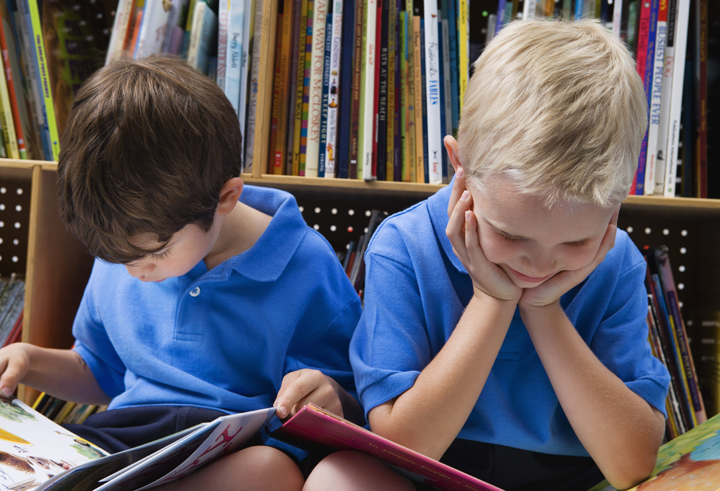They learn to lie at the tender age of four, so how should parents and teachers help kids learn that telling the truth is the right way to go?

New Canadian research suggests that childhood stories, such as Pinocchio and The Boy Who Cried Wolf may not encourage honesty. But tales about telling the truth may inspire kids to confess to their lies.
“Classical stories…have been extensively used to teach children about the consequences of lying and the virtue of honesty. However, there has been no empirical evidence as to whether these stories actually promote honesty in children,” she explained.
Her research, conducted along with University of Toronto scientist Dr. Kang Lee, considered whether cautionary tales that show kids the pitfalls of lying are more effective than stories that showed positive outcomes to telling the truth. The co-authors, both parents to young kids, were also curious as to whether their kids were taking the stories to heart.
READ MORE: Could personality in childhood predict how teens will respond to drinking?
The team worked with 268 children from ages three to seven – during a one-on-one interview, the kids played a game that had them guess the identity of a toy based on the sound it made. Midway through the guessing game, the scientists left the room for a minute to grab a book and told the kids not to look at the toy.
Seventy-four per cent of them did, anyway.
- Budget 2024 failed to spark ‘political reboot’ for Liberals, polling suggests
- Peel police chief met Sri Lankan officer a court says ‘participated’ in torture
- Wrong remains sent to ‘exhausted’ Canadian family after death on Cuba vacation
- Liberals having ‘very good’ budget talks with NDP, says Freeland
When the researchers returned, they read the kids one of four books: The Tortoise and the Hare, The Boy Who Cried Wolf, Pinocchio or George Washington and the Cherry Tree.
Finally, the researchers asked the kids if they had peeked during the guessing game, handing the children an opportunity to tell the truth.
READ MORE: Preschoolers’ eating habits linked to future heart health risks, Canadian study suggests
Turns out, 30 per cent admitted they peeked if they heard The Tortoise and the Hare – the neutral story with no message about honesty. Up to 35 per cent confessed if they heard stories with themes of lying like Pinocchio or The Boy Who Cried Wolf.
However, more than 50 per cent of the kids owned up to their cheating after hearing the story about George Washington bravely admitting to cutting down his father’s cherry tree.
(The father’s response, for those who haven’t read that story, was, “My son, that you should not be afraid to tell the truth is more to me than a thousand trees!”)
Each time, the kids conceded to their bad behaviour with a small apology. “They gave a small conciliatory smile when they confessed. Those who lied looked more emphatic when they said they didn’t peek,” Talwar explained to Global.
READ MORE: Sesame Street on incarceration: New Muppt with parent in jail gets mixed reviews
So what’s the takeaway message for readers? Talwar suggests that parents can persuade their youngsters to tell the truth with positive messages, and not stories of embarrassment (like a growing nose!) and the fallout of lying.
“Emphasizing the positive messages of why honesty is important has the greatest effect on children’s behaviour,” she said. And it’s for two reasons: it tells kids that honesty is valued and important and it shows kids how to behave honestly in everyday life.
What’s unclear is how long-lasting these stories are on kids and how they may affect them in the long run. Sure, kids are open to these messages but as they age, their lying improves.
READ MORE: ‘Educational’ products don’t make babies smarter: Canadian study
Talwar’s research shows that most kids start to lie during preschool – across the board in Canada, U.S., West Africa and China, it’s a universal behaviour that emerges as they develop their cognitive abilities.
“They are likely to reveal their lie or give away incriminating information when asked follow-up questions. As children get older they get better at concealing their deception and it gets harder to detect their lies,” Talwar said.
So they may look you in the eyes and say that they didn’t eat the cookies, but ask them who did, and their story quickly disintegrates.
READ MORE: Sleep machines may be harmful to babies’ hearing, speech
And they lie for the same reasons as adults: to avoid negative consequences, for personal gain, for reputation management, to be polite or even to protect others.
Talwar’s full findings were published Wednesday night in the journal Psychological Science. Read the study here.
carmen.chai@globalnews.ca
Follow @Carmen_Chai




Comments